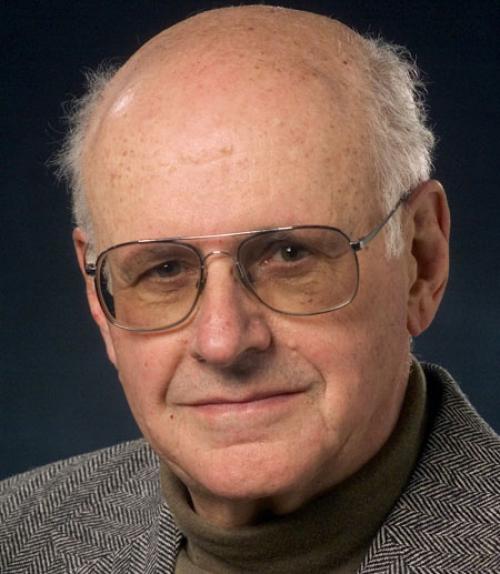Kurt Gottfried, emeritus professor of physics and a recognized expert on nuclear arms control, has been awarded the 2016 Scientific Freedom and Responsibility Award from the American Association for the Advancement of Science (AAAS).
Gottfried, who has been at Cornell for 52 years, was honored by AAAS “for his long and distinguished career as a ‘civic scientist,’ through his advocacy for arms control, human rights and integrity in the use of science in public policy making,” according to a statement from the organization.
Gottfried will receive his award, which includes a $5,000 prize, at the 183rd AAAS Annual Meeting, Feb. 16-20, in Boston.
In 1969, Gottfried helped found the Union of Concerned Scientists (UCS), acting on his concerns about the growing militarization of scientific research during the Vietnam War. He was among the first to publicly raise concerns about space-based nuclear weapons devoted to ballistic missile defense, AAAS noted, and in collaboration with Richard Garwin developed a draft treaty to ban space weapons and presenting it to the U.S. Senate Foreign Relations Committee.
The UCS grew to include concerned citizens as well as scientists, and expanded its work to address environmental issues. The organization began a petition to urge government support of the Kyoto Protocols. Nobel Prize-winning scientist Harold Varmus of Weill Cornell Medicine has said that the UCS “has set a high standard in fearlessly providing reliable, if often controversial, advice to the public and government.”
Gottfried has also worked as a human rights advocate, traveling to the Soviet Union during the Cold War to meet with dissidents. He served on the executive committee of SOS (Scientists for Andrei Sakharov, Yuri Orlov and Natan Sharansky), and later helped bring Orlov to Cornell after his release from prison.
Gottfried co-founded the American Physical Society’s Committee on International Freedom of Scientists, as well as serving as its first chair for several years.
Gottfried was also dedicated to alerting the public when the government distorted science for political goals. He recruited 62 preeminent scientists to help draft and release a statement titled “Restoring Scientific Integrity in Policy Making” in 2004. The document charged President George W. Bush’s administration with “[manipulating] the process through which science enters into its decisions.”
One of the signatories of that statement was Neal Lane, senior fellow at Rice University’s Baker Institute for Public Policy, who nominated Gottfried for the Scientific Freedom and Responsibility Award. Lane previously served as assistant to the president for science and technology during the Clinton administration and director of the National Science Foundation.
In his nomination letter, Lane described Gottfried as “richly deserving of this prestigious award,” and wrote that he “has encouraged fellow scientists to become involved in public policy, speak out on issues at the interface of science, technology and society, and to hold governments accountable.”
Lane concluded his letter by writing that Gottfried “is an icon for what many of us have come to call the ‘civic scientist.’”
Gottfried earned a bachelor’s degree in Engineering Physics at McGill University in Montreal in 1951, and a doctorate in theoretical physics at Massachusetts Institute of Technology in 1955. After spending four years as an assistant professor at Harvard, Gottfried came to Cornell as an associate professor in 1964 and was promoted to full professor in 1968. He retired in 1998.
Gottfried has served on the senior staff of the European Center for Nuclear Research, known as CERN.
Established in 1980, the AAAS Scientific Freedom and Responsibility Award honors scientists, engineers or their organizations whose exemplary actions have served to foster scientific freedom and responsibility.
This article also appeared in the Cornell Chronicle.




